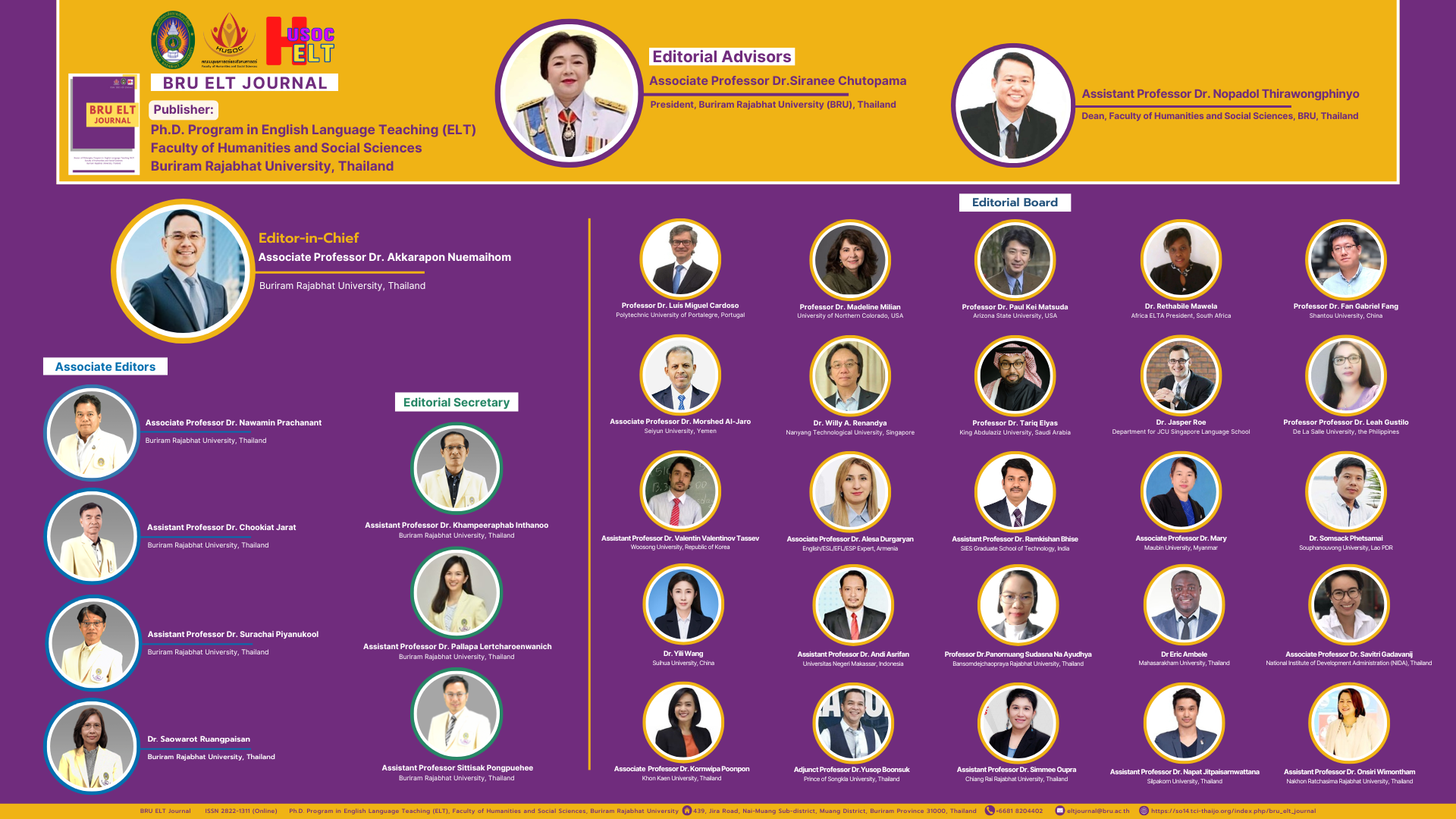Intercultural Awareness: Bridging the Gap for Global Understanding of EFL Learners
DOI:
https://doi.org/10.14456/bej.2024.9Keywords:
EFL learner, intercultural awareness, intercultural communicationAbstract
In an increasingly globalized world, intercultural awareness plays a significant role in promoting effective communication, fostering understanding, and addressing societal challenges arising from cultural diversity. Therefore, the main goals of this mixed-methods study were to assess the level of current intercultural awareness of EFL learners and to examine the implications of intercultural awareness for effective communication and collaboration in multicultural settings. A sample of 73 EFL learners completed an intercultural awareness questionnaire, which was followed by semi-structured interviews with five EFL learners. They were selected by using the convenience sampling method. The results of the research were that 1) The EFL learners had a high level of intercultural awareness, and 2) Communication and collaboration with people from different cultures require intercultural awareness because it will help reduce conflict and work effectively. In addition, the study also found that EFL learners have a high intercultural attitude, intercultural skills, and intercultural knowledge. Moreover, it was found that EFL learners think that communicating with people of different cultures is not difficult if they know and understand that culture, but it is difficult when the culture is very different from one's own culture, such as language, lifestyle, food, and behavior.
References
Barrett, M. D. (2011). Intercultural competence. EWC Statement Series, 2, 23-27.
Bennett, M. J. (2019). People who lack intercultural awareness may be more likely to stereotype and prejudice others from different cultures. In Intercultural communication: A textbook (10th ed., pp. 23-44). Intercultural Press.
Byram, M. (1997). Cultural awareness as vocabulary learning. Language Learning Journal, 16(1), 51-57.
Byram, M. (1997). Teaching and assessing intercultural communicative competence. Multilingual Matters.
Chen, G. M., & W. J. Starosta. (1996). Intercultural communication competence: A synthesis. Communication Yearbook 19.
Chen, G. M., & Starosta, W. J. (1998). Handbook of research on socio-cultural and linguistic perspectives. Sage Publications.
Guerriche, A. (2020). Intercultural identity development through study abroad programmes: An ethnographic case study of Algerian students in a UK university (Doctoral dissertation, University of Bath).
Hall, E. T. (1959). The silent language. Fawcett Publications. Inc.
Hill, J., Nelson, E., Tilman, D., Polasky, S., & Tiffany, D. (2006). Environmental,economic, and energetic costs and benefits of biodiesel and ethanol biofuels. Proceedings of the National Academy of sciences, 103(30), 11206-11210.
Le Breton, D. (2009). Intercultural communication: A critical approach. Sage Publications.
Matsumoto, D. (1990). Cultural similarities and differences in display rules.Motivation & Emotion, 14, 195-214.
Phongsirikul, M., & Thongrin, S. (2019). Developing intercultural awareness in ELT: Students’ attitudes toward their intercultural learning experience. Reflections, 26(1), 78-114.
Porter, R. E., & Samovar, L. A. (2023). Intercultural communication: A context approach (18th ed.). Wadsworth Publishing.
Robins, R. W., Trzesniewski, K. H., Tracy, J. L., Gosling, S. D., & Potter, J. (2002). Global self-esteem across the life span. Psychology and Aging, 17(3), 423.
Sirivichayaporn, U., Srisuantang, S., & Tanpichai, P. (2016). Factors affecting the cultural awareness of undergraduate students, Kasetsart University Kamphaeng Sean Campus. Veridian E-Journal, Silpakorn University (Humanities, Social Sciences and Arts), 11(2), 1-11.
Thomas, D. C. (2004). Cultural intelligence: Living and working global in the 21st century. Harvard Business Review Press.
Ting-Toomey, S. (1999). Communicating across cultures. The Guilford Press.






